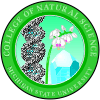



|
|
|
|
| Jan. 13 |
Course Intro/General Principles | CEM 850 |
| January 15–27 | Chemistry of Unactivated Alkenes & Alkynes | 4th Ed: 4, 9.1, 11, vol. A: 5–6 |
| Jan. 29 – Feb. 5 |
Aromatic Substitution | 4th Ed: 11 |
| February 10–19 |
Oxidations and Reductions | 4th Ed: 12 & 5 |
|
|
|
|
| Feb. 24 – March 3 |
Nucleophilic Carbon Reagents Part I: Grignards, Wittigs, etc. | 4th Ed: 2.4-2.6, 7, 8.1 |
| March 5–24 |
Nucleophilic Carbon Reagents Part II: Enolates and Related Nucleophiles | 4th Ed: 1, 2, vol. A 7 |
| March 26–31 |
Nucleophilic Carbon Reagents
Part III: Allylations,
Crotylations, etc. |
4th Ed: 9.1-9.3 |
|
|
|
|
| April 2–9 |
Sigmatropic Reactions | 4th Ed: 6 |
| April 14–21 | Cycloadditions
& Cationic Cyclizations |
4th Ed: 6 & 10 |
| April 23–30 |
Transition
Metal-Mediated and
Related Reactions |
4th Ed: 8.2-8.5, 10.2-10.3 |
| Tuesday May 5 (7:45–10:45 a.m.) |
Final Exam room TBA | 150 pts |
*The links will take you to the start of the related chapter in Professor William Reusch's Virtual Textbook of Organic Chemistry
Classic Syntheses (50 points):
|
|
|
|
| Jan. 17 |
Rapamycin (Chapter 31) | Robert Maleczka |
| Jan. 31 |
Strychnine (Chapter 2) | Kumar Ashtekar |
| Jan. 31 | Erythronolide B (Chapter 11) | Tetyana Berbasova |
| Feb. 7 |
Amphotericin (Chapter 24) | Philipp Roosen |
| Feb. 7 |
Zaragozic Acid (Chapter 35) | Steven Dulaney |
| Feb. 14 | Cytovaricin (Chapter 28) | Yiding Ma |
| Feb. 14 | Palytoxin
(Chapter 36) |
Wen Yuan |
| March 7 |
Endiandric Acids A–D (Chapter 17) | Luis Sanchez |
| March 7 | Methyl Homosecodaphniphyllate (Chapter 26) | Hao Li |
| March 14 |
Asteltoxin (Chapter 20) | Luis Sanchez |
| March 14 |
Hirsutene
(Chapter 23) |
Heyi Hu |
| March 21 | Brevetoxin (Chapter 37) | Amila Dissanayake |
| March 21 |
Progesterone (Chapter 6) | Philip Bentley |
| March 28 | Ginkolide B (Chapter 25) | Rosario Amadosierra |
| March 28 | Prostaglandin F2a (Chapter 5) | Quanxuan Zhang |
| March 28 |
Strychnine (Chapter 33) | Nicole Hewlett |
Total Synthesis (100 pts):
Grading Scheme:
Missed Exams:
Problem Sets:
Supplemental Material:
Policy on Cheating:
Return to CEM 852
Homepage
last updated 2/18/09 by REM